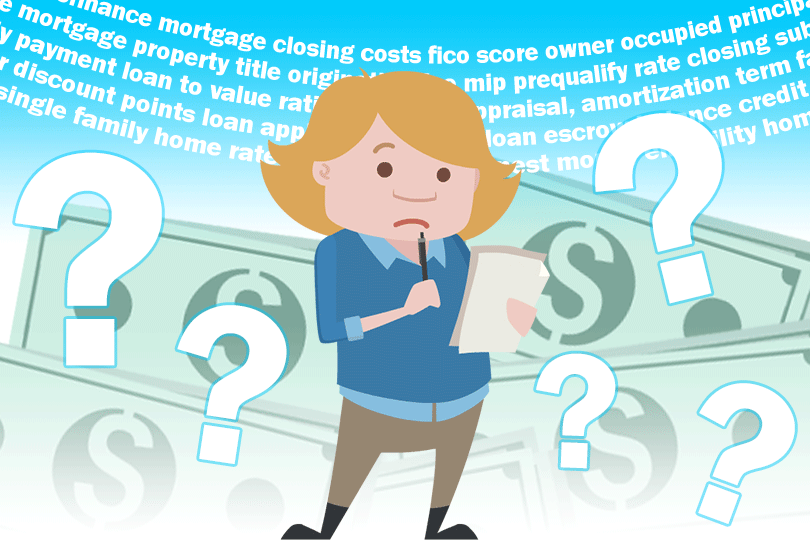More Home Loan Terms You Should Know

Understanding key loan terminology can help. Some borrowers, for example, aren’t sure what the difference between earnest money and the down payment is. Others might wonder what a contingency reserve is or what it is supposed to do. We examine some key terms below.
Appraisal
An appraisal is a lender tool used to ensure the house purchased with an FHA mortgage meets minimum standards and establishes the home’s fair market value. However, an appraisal is not as complete as a home inspection and should never be used in place of one.
Contingency Clause
Several types of contingency clauses can be used to condition the home's sale on certain outcomes, such as the appraisal's amount coming below the sale price or the sale of the borrower’s existing property.
One type of FHA loan contingency clause allows the borrower to walk away from the transaction without giving up earnest money. This is a built-in feature of FHA loans and applies regardless of whether or not your loan documents contain the clause.
Contingency Reserve
This is completely separate from the contingency clause mentioned above. A contingency reserve is typically used in renovations or home construction to cover the unexpected, such as cost overruns or additional supplies as needed.
Without a contingency reserve, a remodeling project on an FHA 203(k) rehab loan might experience difficulty. It’s best to plan on cost overruns as a standard part of such home loan planning. Those buying a home without plans to renovate or build won’t need a contingency reserve.
Closing Costs
Closing costs are expenses paid on closing day that are part of buying a home. You will pay a lender fee, an Up-Front FHA Mortgage Insurance Premium, and other expenses as required. The lender is not allowed to pass certain expenses on to the borrower, such as the bank’s legal fees.
Debt-To-Income Ratio
Your loan officer calculates your debt ratio to determine how much of your monthly income is taken up by outgoing debt. Your debt ratio is important to FHA loan approval. Your loan depends on more than just FICO scores. If half or more of your income is taken up by debt, you’ll need to work on lowering that percentage before applying for a mortgage.
Down Payment
A borrower must pay a minimum amount toward the home, typically 3.5% or 10% down (depending on FICO scores). Down payments are paid at closing time.
Earnest Money
The funds put into escrow when you want to let the seller know you are serious about making an offer. For FHA loan purposes, earnest money is not part of your down payment.
Title Search
This home loan expense is associated with making sure the home and/or land you buy with the FHA mortgage is free and clear, with no prior liens or other issues that might come back to haunt a borrower later.
------------------------------
RELATED VIDEOS:
Here's the Scoop on Conventional Loans
When Do You Need a Cosigner?
Analyzing Your Debt Ratio

Do you know what's on your credit report?
Learn what your score means.







